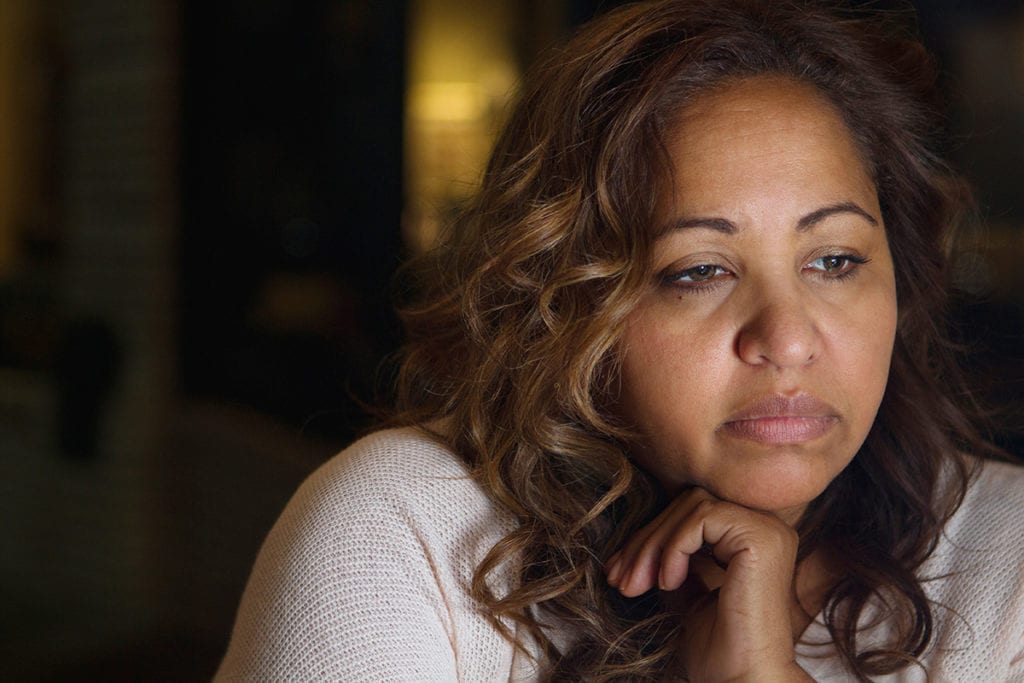Mental health issues can be a growing problem when help isn’t sought for the suffering individual. The Surgeon General has reported this is a growing problem among African Americans as only one third of this population seeks proper treatment. According to the National Alliance on Mental Health, African Americans are more likely to experience social circumstances that increase their chances of developing a mental illness at a disproportional rate. This segment of the population is also less likely to receive diagnosis and treatment for their mental illness as compared to Caucasian Americans. At the age of 18, Gloria Sims started to drink. “I’d say the breaking point was at my high school reunion when I tripped and fell and sprained my ankle,” said Gloria. “It wasn’t the high heels – I blamed the concrete – it was because I was drunk.” Gloria will be the featured in an upcoming episode of A&E’s Intervention. “I had never been to therapy before so I was pretty scared. Black women and the whole culture … you just take care of your own problems,” said Sims. The 2008 National Healthcare Disparities Report has shown 8.3 percent of non-Hispanic black women under the age of 18 received mental health treatment in 2006. This was a paltry number compared to the 20 percent of non-Hispanic white women. In 1999, The Substance Abuse and Mental Health Services Administration reported that 67.9 percent of black women reported ever using alcohol; another 45.1 percent reported using alcohol that year; and 32.3 percent reported alcohol consumption in the past month. Help is available, but these women must be able to break through cultural barriers and other obstacles that keep them from seeking the help they need. Policymakers and educators would do well to understand there barriers when developing programs of intervention.

